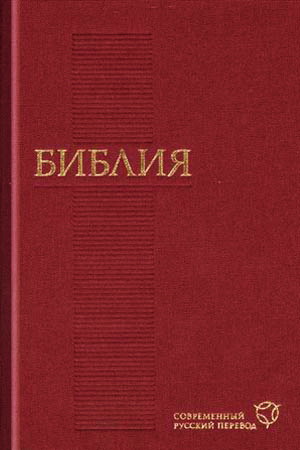
Korner - Origin and meaning of Ekklesia
There is no doubt about the importance of the word ekklesia as we seek to understand the identity of early Christ-followers. This was the term that Paul chose to designate these early and formative communities on an on-going basis. It was a term with a long past, and in using it, they gave it a very prominent and significant future. But as a term, ekklesia has been much neglected in New Testament Studies. There have been other studies, but this work by Dr Ralph Korner is a comprehensive, full-length work devoted to helping us to understand the varied background and meaning of the term.
This study makes a rich contribution to research in many ways. Firstly, it draws not only on literary sources, but also on over 1800 uses of the word ekklesia in inscriptions. The detective work involved in finding and analyzing all these inscriptions means future scholars are much in Dr Korner’s debt! The range of uses of ekklesia in these inscriptions is brought into the discussion in a new and very enlightening way. In examining this evidence, Dr Korner asks how Greco-Roman readers might have perceived Christ-followers, both socially and politically, when they used the term ekklesia. Secondly, this study examines the use of ekklesia in the context of Roman Imperial ideology. What were the implications, in the political sphere, of Christ-followers designating themselves collectively as ekklesiai? Thirdly, Dr Korner provides a comprehensive analysis of how ekklesia is used in Jewish contexts. As part of this discussion, he shows that some Jewish sources use ekklesia as a term for an actual, gathered group, and discusses the connotations of the term in this context.
Fourthly, and related to the previous points, Dr Korner discusses which was the first non-civic group in antiquity to adopt ekklesia as a self-designation for their group. Fifthly, the study investigates the question of which community of the early followers of Jesus was the first to use ekklesia as a permanent self-designation for their group. What does the adoption of the term say about the identity of the Christ-followers who used it? Finally, given that Paul uses ekklesia as a designation for groups that were made up of both Jews and Gentiles, it is argued that Paul’s use of ekklesia for Christ-believing groups that included Gentiles reinforces the continuity of these groups with ethnic Israel. Hence it is argued that the use of ekklesia as a collective self-designation for a group with Jewish roots does not reflect a supersessionist ideology.
Ralph J. Korner - The origin and meaning of Ekklesia in the early Jesus movement
(Ancient Judaism and early Christianity, Volume 98)
Leiden ; Boston : Brill, 2017. - 381 pp.
ISBN 978-90-04-34498-3 (hardback)
ISBN 978-90-04-34499-0 (e-book)
Ralph J. Korner - The origin and meaning of Ekklesia in the early Jesus movement - Contents
Foreword
Acknowledgments
Abbreviations
1 Introduction
- 1.1 Ekklesia as Christ-follower Sub-Group Identity
- 1.2 Christ-follower Ekklesiai: Three Investigative Questions
2 Ekklesia in Greek and Roman Sources
- 2.1 Introduction
- 2.2 Civic Ekklesiai in the Imperial Period: The Politics of Oligarchy, Hierarchy, and Democracy
- 2.3 Non-Civic Ekklesiai and Associations
- 2.4 Conclusion: Chapter 2
3 Ekklesia in Jewish Sources
- 3.1 Introduction
- 3.2 Ekklesia and Synagogue Terminology in the 1st Century CE
- 3.3 Ekklesia and Public Jewish Assemblies
- 3.4 Ekklesia and Semi-Public Jewish Institutions
- 3.5 Conclusion: Chapter 3
4 Ekklesia in Early Christ-follower Sources
- 4.1 Introduction
- 4.2 Who Were the First Christ-followers to Self-identify as Ekklesia?
- 4.3 Ekklesia as Political Identity: Counter-Imperial Ideology?
- 4.4 Ekklesia as Ethno-Religious Identity: Supersessionist Ideology?
- 4.5 Conclusion: Chapter 4
5 Conclusion
Bibliography
- 1 Primary Epigraphic Sources
- 2 Primary Literary Sources
- 3 Secondary Sources
- Appendix 1: Ekklesia in First Century bce Inscriptions
- Appendix 2: Ekklesia in First Century ce Inscriptions
- Appendix 3: Ekklesia in Second Century ce Inscriptions
- Appendix 4: Synago and Eis Ekklesian: Greek Sources
- Appendix 5: Verbs with Eis Ekklesian: Josephus
Index of Inscriptional Sources
Index of Literary Sources
Index of Subjects
Index of Modern Authors
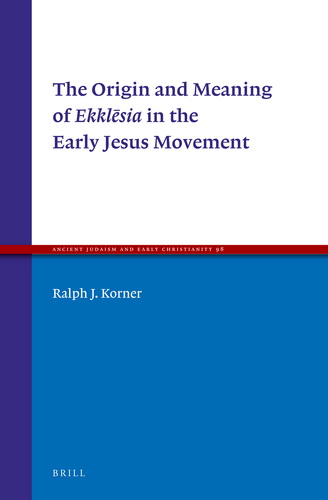
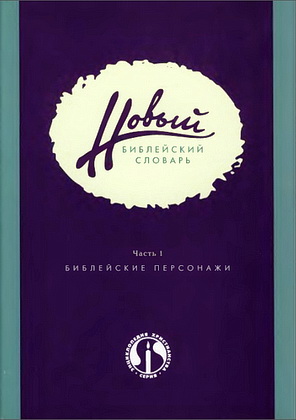
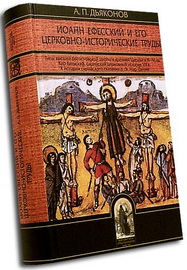

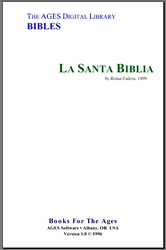
Комментарии (1 комментарий)
И правильно вы сделали, что выложили эту великолепную книгу на сайте для массового читателя! Новозаветникам - обязательное чтение, чтобы не заниматься профанацией...